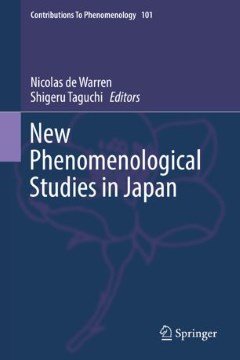Repository | Book | Chapter

(2019) New phenomenological studies in Japan, Dordrecht, Springer.
Heidegger's language was previously considered to be unique vocabulary or jargon. However, the publication of the collected works of Heidegger allows us to see in detail that he had acquired his ontological concepts largely by translating ancient Greek concepts into German. My paper aims to clarify the role of translation in Heidegger's philosophy and to demonstrate the insights he has into the nature of translation. First, I illustrate that translation is required as an essential procedure for posing a question of meaning of Being in early Heidegger. The requirement for translation can, I argue, only be understood in the context of the general question concerning meaning Heidegger shared with his contemporaries. Second, I explore Heidegger's method of translation called "literal" or "true-to-word" translation in his lectures from the 1940s, and show that his strategy in translation belongs to the underestimated tradition of "word for word" translation in opposition to the dominant ideal of 'sense for sense" translation. I further argue that Heidegger's true-to-word translation is aimed to cause an existential shift for readers by making the most self-evident in reader's native language foreign and questionable, and to situate readers in possibilities of thinking on the Grundwörter of Being.
Publication details
DOI: 10.1007/978-3-030-11893-8_9
Full citation:
Ikeda, T. (2019)., Martin Heidegger and the question of translation, in N. De Warren & S. Taguchi (eds.), New phenomenological studies in Japan, Dordrecht, Springer, pp. 105-120.
This document is unfortunately not available for download at the moment.



